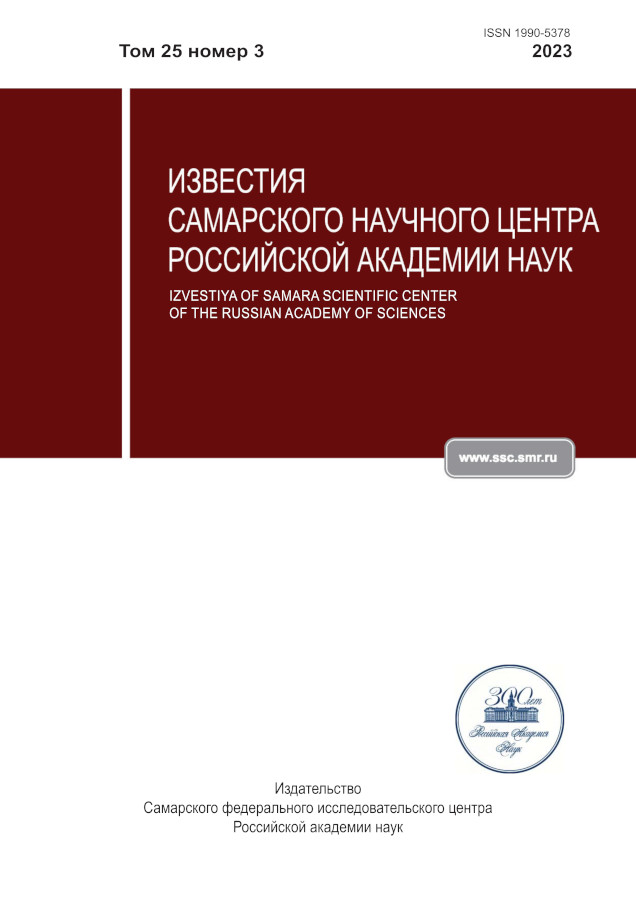Methodology for assessing resource-saving production systems in a circular economy
- Authors: Minulina O.V.1
-
Affiliations:
- Kazan National Research Technological University
- Issue: Vol 25, No 3 (2023)
- Pages: 77-83
- Section: Articles
- URL: https://journals.eco-vector.com/1990-5378/article/view/624761
- DOI: https://doi.org/10.37313/1990-5378-2023-25-3-77-83
- ID: 624761
Cite item
Full Text
Abstract
In the new conditions of conducting production and economic activities, the importance and relevance of increasing the resource efficiency and environmental friendliness of production processes is increasing, which, within the framework of the concept of sustainable development and the ESG agenda, is of critical importance for petrochemical enterprises. At modern industrial enterprises, there is an urgent need to design and implement closed production cycles in management processes that increase the resource efficiency of production and industry as a whole. The purpose of the article is to develop a conceptual model for managing the process of transition of petrochemical enterprises to a closed cycle. The object of the study is petrochemical enterprises, the subject is production cycles. The objectives of the article are as follows: to describe the methodology for developing a management model for the process of transition of petrochemical enterprises to a closed cycle; present a description of a waste-free closed production process; build a design scheme for an absolutely closed or waste-free technological cycle. The results of the study made it possible to systematize the following conclusions: 1) a closed production cycle is proposed to be understood as a form of organizing the production of petrochemical products, in which production resources (raw materials, energy) are used repeatedly in the production process, having previously undergone cleaning, tooling, cooling, etc., returning the required quality of the production resource within the framework of this production technology with its subsequent entry to the first or previous stages of the value chain; 2) the specificity of the organization of a closed cycle in the petrochemical industry is associated with the formation of a significant amount of by-products during the main chemical process, which makes it possible to obtain by-products that can also be used in value chains (for example, mineral fertilizers, sulfuric acid, etc.). P.); 3) the advantage of chemical recycling is the possibility of processing mixed, multi-component and contaminated waste, as well as obtaining secondary raw materials that are practically indistinguishable in properties from the original primary raw materials, resulting in an unlimited number of processing cycles; 4) the basis of the conceptual model for managing the process of transition of petrochemical enterprises to a closed cycle is such management elements as the goal, criteria, subject and object of management, methods and tools of system engineering; problems of reorganization of production processes, as well as tasks and technologies for the transition to closed production processes. The theoretical significance of the study lies in the systematization of the conceptual foundations for managing the process of transition of petrochemical enterprises to a closed cycle, which will allow in further scientific research to develop practical aspects of managing the closure of production cycles, the transition to waste-free production at the micro level.
About the authors
Olga V. Minulina
Kazan National Research Technological University
Author for correspondence.
Email: olga.minulina@bk.ru
Competitor at the Logistics and Management Department
Russian Federation, KazanReferences
- Kontseptsiya ustoychivogo razvitiya Kontseptsiya ustoychivogo razvitiya OON. URL: https://sdgs.un.org/goals (data obrashcheniya: 15.12.2022).
- Barsegyan, N.V. Spetsifika berezhlivoy organizatsii struktury upravleniya neftekhimicheskim predpriyatiem / N.V. Barsegyan // Izvestiya Samarskogo nauchnogo tsentra Rossiyskoy akademii nauk. - 2020. - T. 22. - № 2 (94). - S. 100-106.
- Kudryavtseva, S.S. Nauchno-tekhnicheskiy potentsial Rossii kak faktor ekonomicheskogo rosta v ekonomike znaniy / S.S. Kudryavtseva, K.K. Neganov // Ekonomicheskiy vestnik Respubliki Tatarstan. - 2016. - № 2. - S. 61-65. EDN: WBGHSF
- Kudryavtseva, S.S. Sistemnyy inzhiniring v razvitii vysokotekhnologichnoy promyshlennosti / S.S. Kudryavtseva, M.V. Shinkevich, I.I. Ishmuradova // Nauka i biznes: puti razvitiya. - 2020. - № 9 (111). - S. 99-103. EDN: IDTQER
- Nedel'chenko, S.I. Sistema global'noy dinamicheskoy optimizatsii i sistema optimizatsii v real'nom vremeni: kriterii vybora sistemy upravleniya tekhnologicheskimi protsessami / S.I. Nedel'chenko, M.S. Gayfullin, E.S. Golovina, Yu.A. Ergomyshev, V.A. Lavrent'ev, A.V. Komogorov // Territoriya Neftegaz. - 2019. - № 12. - S. 12-17. EDN: NLCCSS
- Khayrutdinov, I.R. Tsirkulyarnaya ekonomika neftekhimicheskoy promyshlennosti / I.R. Khayrutdinov // Zhurnal pravovykh i ekonomicheskikh issledovaniy. - 2020. - № 3. - S. 197-199. EDN: YPUAOE
- Gur'eva, M.A. Mekhanizm adaptatsii elementov tsirkulyarnoy ekonomiki v biznes-model' promyshlennogo kholdinga (na primere kompanii PAO "Sibur") / M.A. Gur'eva, V.V. Butko // Kreativnaya ekonomika. - 2021. - T. 15. - № 3. - S. 837-860. EDN: CGOEUP
Supplementary files







